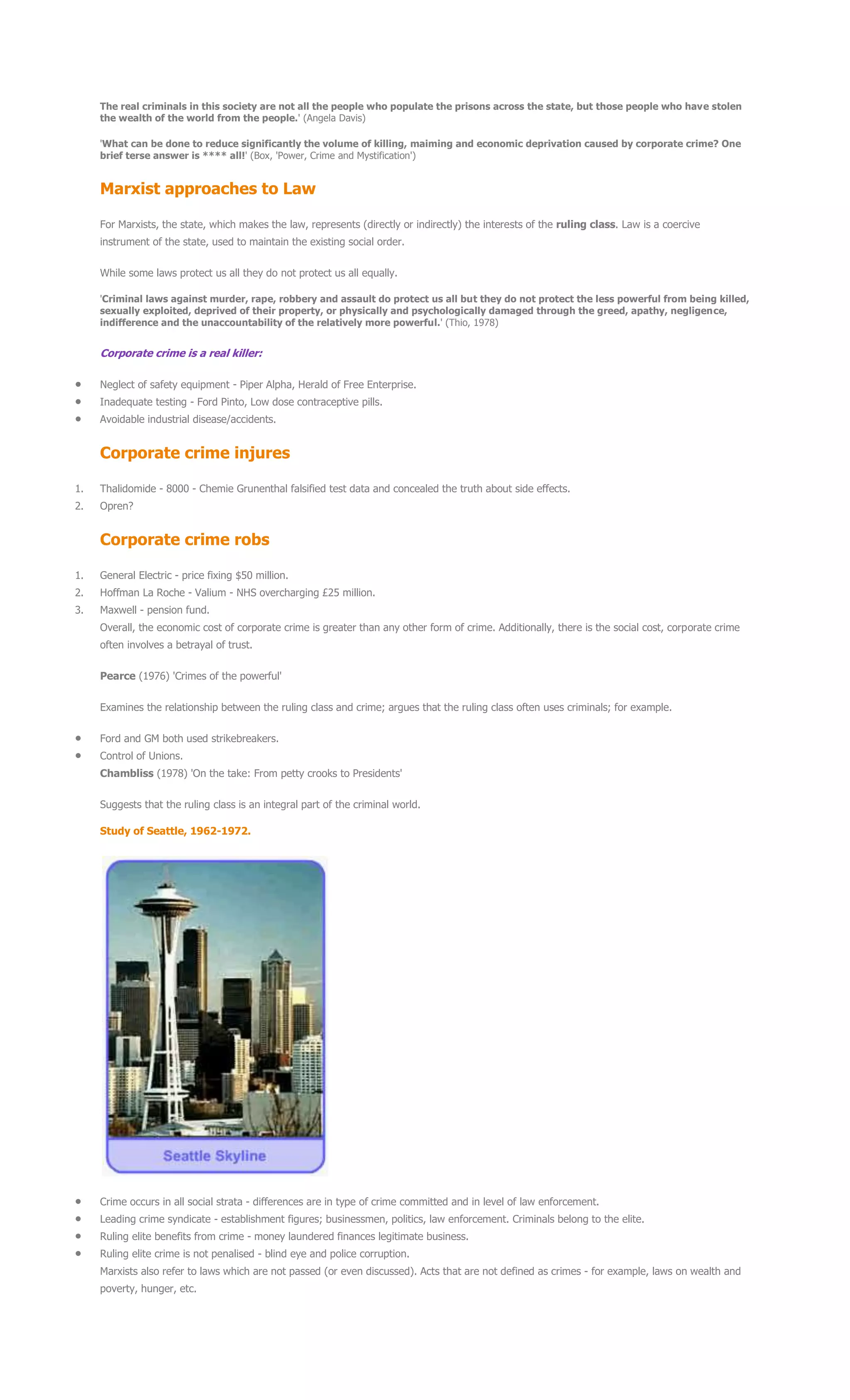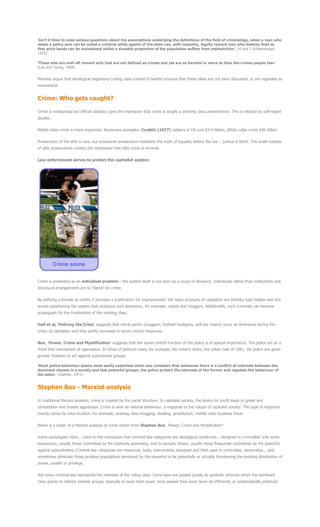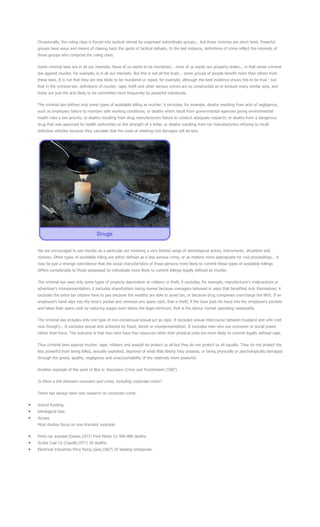1) Marxists argue that law and the definition of crime are determined by and protect the interests of the ruling class rather than society as a whole. While some laws like those against murder and theft benefit everyone, they do not protect the less powerful equally.
2) Corporate and white collar crimes committed by powerful individuals and organizations often cause much greater harm and economic damage than street crimes, but are rarely prosecuted. The definition of crimes excludes acts like corporate negligence that lead to death or harm.
3) Law enforcement serves to maintain the capitalist system and divert attention from its structural causes of problems. Crimes are blamed on individual deviance rather than the social conditions created by inequality of the system.


